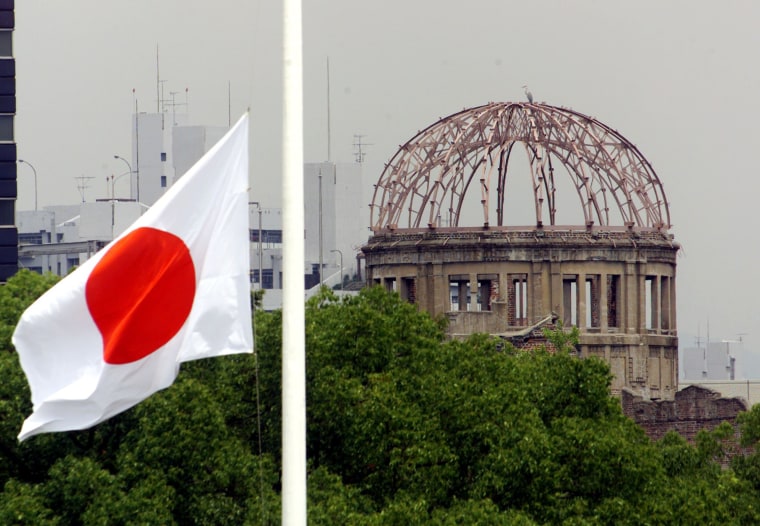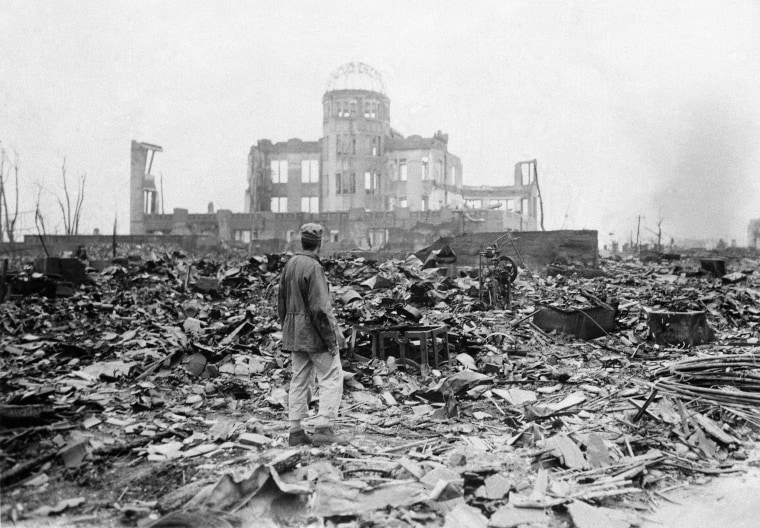It will have taken President Barack Obama some seven years — most of his time in office — to make the sensitive and profound journey to Hiroshima, Japan.
It was back in 2009, that Obama first expressed a desire to visit the only cities on earth, Hiroshima or Nagasaki, devastated by atomic bombs.
But the time was never right — until now, his fourth visit to Japan, in his final year in office.
The scale of what happened there — hundreds of thousands killed, countless others sickened by the fallout, the Japanese surrendering days later finally ending World War II in the Pacific — remains a historical moment of a magnitude almost incomprehensible.
If an American president visited, would he apologize? What would he say to survivors and victim’s relatives? And back home, what would he say to the veterans and their families who gave and lost so much?
On May 27 Obama will visit the Hiroshima Peace Memorial Park, a site dedicated to the memory of the victims of the bombings.
The White House was careful to emphasize what Obama will not do:
"He will not revisit the decision to use the atomic bomb at the end of World War II," wrote Deputy National Security Advisor Ben Rhodes in a post on Medium. "Instead he will offer a forward looking vision focused on our shared future."

Looking forward, that is, and specifically not offering an apology for what happened.
This is especially notable perhaps because Obama has often been criticized for "apologizing" for America around the world, and in the process allegedly diminishing the nation’s standing.
Many Americans believe the atomic attacks were justified and hastened the end of the war. However, Japanese survivors' groups have campaigned for decades to bring leaders from the U.S. and other nuclear powers to see Hiroshima's permanent scars as part of a grassroots movement to abolish such weapons.
Related: President Obama to Make Historic Visit to Hiroshima
The White House acknowledged that as the only nation to use nuclear weapons, and now with the world’s largest arsenal, America “bears a special responsibility,” regarding the nuclear issue.
"The President’s time in Hiroshima also will reaffirm America’s long standing commitment — and the President’s personal commitment — to pursue the peace and security of a world without nuclear weapons," Rhodes wrote.
Related: Hiroshima Anniversary — What to Know About Nuclear Weapons
Obama recently hosted a nuclear security summit of world leaders in Washington, D.C., an event limited by what could be accomplished because of a Russian boycott. The U.S. and Russia have some 90% of the world’s nuclear warheads.
Secretary of State John Kerry last month became the highest-ranking U.S. official to visit Hiroshima, laying a wreath and describing the museum there as "stunning" and “gut-wrenching.”
Kerry was there to attend a meeting of foreign ministers and was accompanied by U.S. Ambassador to Japan Caroline Kennedy. Former President Jimmy Carter toured the site after leaving office in 1984.
"It’s hard to look back and second guess [Truman] too much"
Obama will be in Japan to attend a G-7 summit meeting hosted by Prime Minister Shinzo Abe. Asked about Obama’s visit to Hiroshima, Abe called it a "very big decision" for Obama, and said he welcomed the president “from the bottom of my heart.”
"Seventy years ago, so many people were mercilessly killed by the dropping of the atomic bomb," Abe told reporters. “I would like this visit to be an opportunity to honor all the victims in Japan and in the United States.”

He said Japan had “consistently called for the abolition of nuclear weapons.”
“By having President Obama visit Hiroshima and see the realities of radiation exposure, and by having him communicate his thoughts and feelings to the world, I believe this will lend great power towards achieving a world without nuclear weapons,” Abe added.
The visit also will likely focus on how far the two nations have come in 70 years to become close allies.
Related: Japan PM Shinzo Abe Vows Future Without Nuclear Weapons
Still, even though Obama will try to focus on the future, heavy questions about the past still linger.
At a White House briefing, spokesman Josh Earnest was asked whether he thought Obama would have made the same decision as President Harry Truman.
“It’s hard to look back and second guess him too much,” Earnest said, adding he thought Truman’s paramount concern was America’s national security, and that the question should be left to historians.
Mindful of the sensitivities here in the U.S. about visiting Hiroshima, and appearing in any way to cast a negative light on the actions of the American military back then, Obama plans to commemorate their heroism when he returns.
Memorial Day is just a few days later.
“Their cause was just, and we owe them a tremendous debt of gratitude,” Rhodes wrote.
